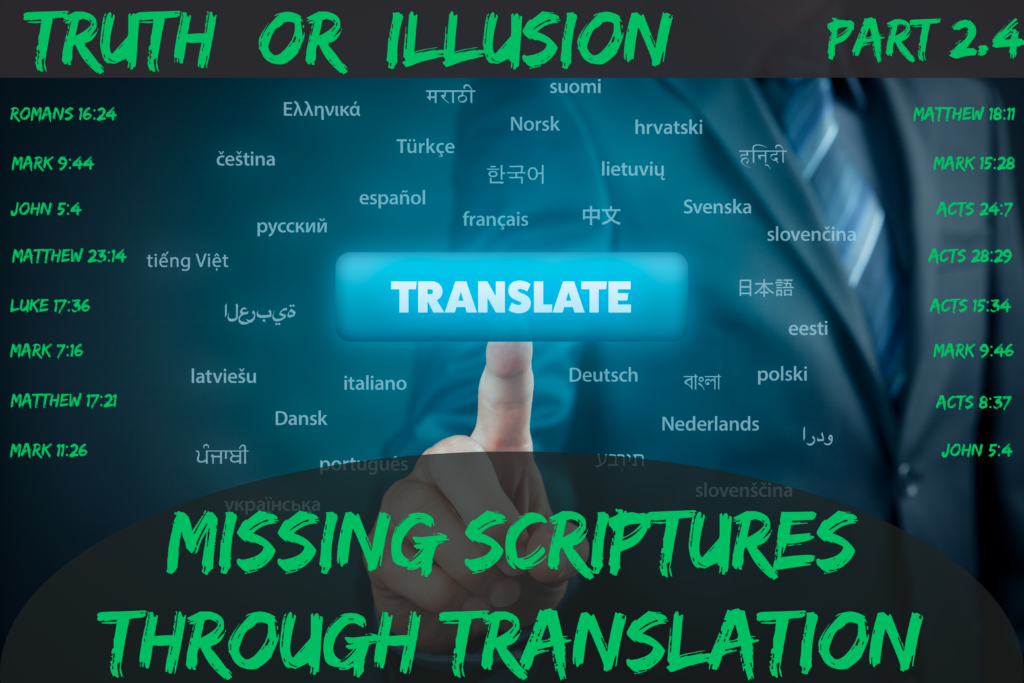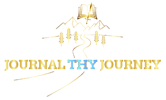
22-23 – Professing to be wise, they became foolish and CHANGED the glory of the incorruptible Elohim into the likeness of an image of a corruptible man,….
25: Who changed the truth of Elohim into a lie …
In this and all Food for Thoughts I recommend you read the Scripture(s) provided and the entire chapter they are from to obtain more insight.
Who’s changing the TRUTH Now?
Aramaic or Greek
Before we move on to Part 3 of the Truth or Illusion series, let’s get one more understanding of the New Testament scripture translation. That understanding is the mindset of the Yahsha’el (Israelites) in that era and their feelings and customs toward Greeks and possibly Romans.
Let me introduce Flavius Josephus, also known as Yosef Ben Mattityahu, and his firsthand account of how the Yahudim (Jews) and Yahshar’el dealt with Greek and other languages they considered pagan. Josephus was a Yahudim historian in Israel in A.D. 37. He was the most productive writer in Israel’s history, and his work is widely accepted and used as a primary source by many scholars worldwide. Some say Josephus was a Pharisee born of a priestly line, although this is speculative. He was a highly educated scholar and advocate in Israel’s affairs, later leading the Yahudim army against Roman attacks in Galilee. However, Flavius Josephus ultimately defected to the Roman side and was granted Roman citizenship.
Flavius Josephus’s firsthand account of the Greek language
“For those of my own nation freely acknowledge that I far exceed them in the learning belonging to Jews; I have also taken a great deal of pains to obtain the learning of the Greeks, and understand the elements of the Greek language, although I have so long accustomed myself to speak our own tongue, that I cannot pronounce Greek with sufficient exactness; for our nation does not encourage those that learn the languages of many nations, and so adorn their discourses with the smoothness of their periods; because they look upon this sort of accomplishment as common, not only to all sorts of free-men, but to as many of the servants as please to learn them. But they give him the testimony of being a wise man who is fully acquainted with our laws, and is able to interpret their meaning; on which account, as there have been many who have done their endeavors with great patience to obtain this learning, there have yet hardly been so many as two or three that have succeeded therein, who were immediately well rewarded for their pains.”
Antiquities XX, XI 2. {published circa A.D. 93)
In this writing, we learned that Josephus, a highly educated scholar known for his vast knowledge and intellect, openly acknowledged his limited proficiency in the Greek language. He admitted that he did not know Greek well enough to speak it fluently and emphasized that he knew only a few individuals who had mastered it. This serves as a testament to the fact that Greek was not widely spoken in Israel and was not prevalent as a secondary language. Learning Greek required deliberate study and was not a casual pursuit in first-century Israel. Moreover, going beyond a simple Greek fluency of what was necessary to get by was not encouraged and looked on as common, pointing back to his lack of knowing many who mastered Greek. Conversely, in the cultural context of that time, wisdom was attributed to individuals who deeply understood Torah law and accurately interpreted its meanings.
Definition of Fluent:
- The measurement of the ability one has to speak smoothly and freely without the need to pause and think about the grammar, vocabulary or pronunciation one needs to communicate.
- Capable of using a language easily and accurately
- Having or showing mastery of a subject or skill
Definition of Literate:
- The ability to identify, understand, interpret, create, communicate, and compute using printed and written materials associated with varying contexts
- Able to read and write
- Having knowledge or competence
- Having or showing knowledge of literature, writing, etc.; literary; well-read.
If you think about it, you can see similar commonalities in our American society today. Many non-native English speakers (immigrants, asylum seekers, refugees, visa workers, etc,.) are moving here from around the world. Many of them, if not most, are not trying to master the English language. Their goal, more or less, is to learn enough to get by (get a job, earn money, communicate, and be somewhat sociable). I can’t be entirely certain, but it seems unlikely that their aim is to become a scholar in the English language, much less an English book writer. It’s worth noting that many Americans, despite being exposed to English from a young age and studying it in school, are in a similar position, knowing just enough to get by.

According to The National Literacy Institute
“In 2024, the literacy rate in the United States is 79% for adults, which means that 21% of adults are illiterate. This is based on the following literacy statistics:”
- 54% of adults have a literacy level below 6th grade
- 20% of adults have a literacy level below 5th grade
- 34% of adults who lack literacy proficiency were born outside the US
Are we to believe that Yahshua, His Yahudim disciples, and most of the people in Israel were fluent and literate in Hebrew, Aramaic, and Greek? No, they likely spoke a small amount of Greek, the language of trade and business, to earn money and be sociable. Hebrew was probably spoken fluently, but literacy was low, whereas Aramaic was spoken fluently, and literacy was high.
Is it not interesting that Hebrew and Aramaic hold a sense of Holiness in many Hebrew circles today, and Greek is not to be found among them and is still considered pagan? With that said, Aramaic is not without its faults either, as the language was forced upon Yahshar’el during the Babylonian captivity. Aramaic was a slave language for Yahshar’el, just like English is a slave language for the Yahshar’el in America, taken in the Transatlantic Slave Trade. Therefore, it is not a Heavenly language, as many think. However, it is the language that Yahshua spoke, making it Qodesh (holy), or at least His words and the Aramaic words of others in the New Testament are Qodesh.
Conclusion
Yahshua and most other Yahudim were fluent and literate in the Aramaic language (Luke 4:16-21, 2:39-52). According to Matthew 15:24, Yahshua’s mission was to reach “the sheep which went astray from the house of Yahshar’el,.” So, it was essential for him to convey 𐤉𐤄𐤅𐤄’s message in a way that the people of Yahshar’el could understand. Since they were not fluent in Greek, He communicated in Aramaic to ensure they could comprehend His teachings and possibly some Hebrew.
The Apostle Shaul (Paul) was slightly different from Yahshua in that he was a Roman Citizen and spoke Greek. However, his message was always to the Yahudim first and then to the gentile, which means he would have communicated via Aramaic. Shaul’s ministry pattern is mentioned an impressive nine times in the book of Acts. (Acts 13:14, 14:1, 17:1-2, 17:10, 17:16-17, 18:4, 18:19, 19:8, 28:17). Paul was in line with Flavius Josephus, who wrote in Aramaic First to the Yahudim and later translated his works into Greek.
- Imagine that your husband, whom you deeply loved, had passed away, and his heartfelt love letters to you had been translated into Chinese. Which would hold a greater sentimental or emotional connection for you – the original letters or the translations?
- If someone took the originals and left you with the Chinese translations, wouldn’t you insist on getting the originals back?
Let’s say you could not get the originals back and have the Chinese letters translated back into your native English. Well, now you have a translation of a translation. Much of the original power and meaning were lost through translation from English to Chinese, languages that are quite alien to each other. But then, the translation from Chinese back to English at least doubles the dilemma, adding to the complexity.
Do you see the dilemma with all the translation confusion? I submit that the Peshitta is a collection of lost or stolen love letters of the good news in Yahshua’s native tongue, Aramaic. It is the love letters and story of your lover and it is the original or straight original, as the word Peshitta means straight. We should be using it as our primary source, not Greek.
Your Bible is probably a translation, of a translation, of a translation. The process is perhaps as follows: Hebrew or Aramaic to Greek, from Greek to Latin, and from Latin to English. Since we have read only translations and translations of translations, do you think anything has been lost?
Subtle changes here and there have the ability to alter the meaning of things and cause massive illusions and confusion that ultimately turn into delusion. Most people will say their Bible is good enough or in a translation they can understand. However, I challenge you to reach for a deeper understanding, led by the Ruach HaKodesh and motivated by critical thinking that will alter your perspective on Bible translations and force you to look for a direct word-for-word translation of the original text.
By: David Edwards – HalleluYAH – Praise YAH – Praise 𐤉𐤄𐤅𐤄

